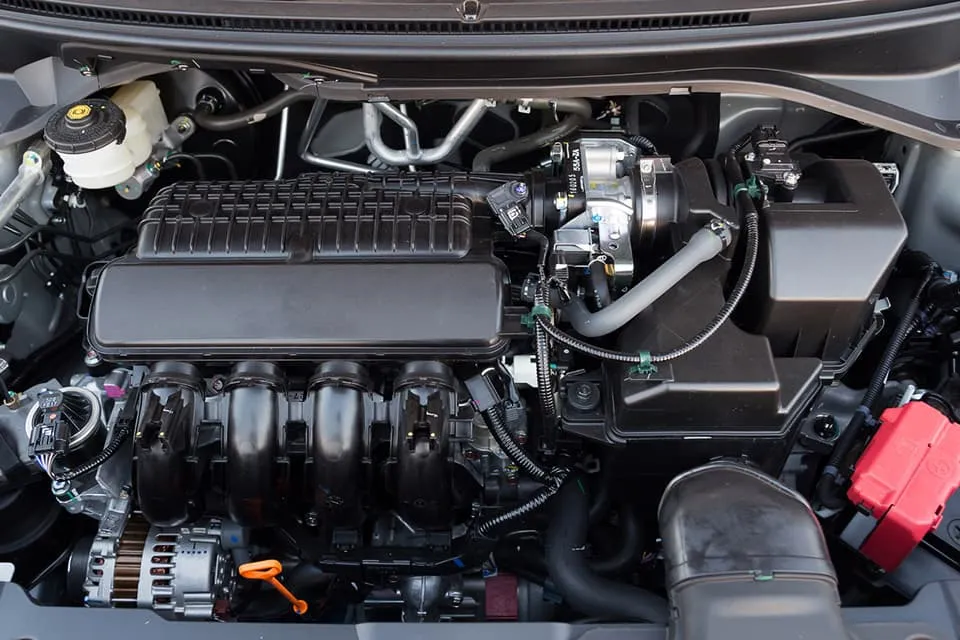What Is The Fair Market Value of a Car?

Whether you are buying or selling a car, you want to know everything you can about your car's fair market value. A fair market value of your car is one of the ways to estimate overall worth; this number is determined by the price a seller is willing to set and a buyer is willing to pay. Fair market value can also refer to the amount an insurance company decides as the payout for your vehicle in case of an accident.
The fair market value of your car can decide what it will sell for on the open market and what type of replacement you could get from an insurance company. What fair market value your vehicle receives is based on several factors, including "like kind and quality", age, mileage, condition, and the car's history.
What Factors Affect Fair Market Value?
As it is with residual value, fair market value of your car can be affected by a variety of elements. Each will have a distinct effect on the car's condition and how much value it holds through depreciation. The primary components that have the most effect are:
Like Kind and Quality
"Like kind and quality", or LKQ, is a term used by insurance companies to describe the level of quality and composition that they would be willing to meet when supplying a vehicle replacement. A clause relating to LKQ can usually be found in the terms of your insurance policy and can help you get a better idea of your car's fair market value.
LKQ can also be useful in the case of an accident; if your insurance policy contains an LKQ clause, that means you are usually guaranteed a new car if your vehicle is involved in a disabling collision. This can help make the stressful situation of an auto wreck that much more palatable and reduce stress in an already trying time.
Age
Age is a big component when calculating the fair market value of a car; because a car tends to lose value as time goes on, an older car is likely worth less due to the effects of both depreciation and normal wear-and-tear. The only exception to this would be if the car has been deemed classic (a car that is at a minimum 20 years or older) or antique (a car that is at a minimum 45 years or older.)
Even with a classic or antique title, a fair car price can still be lowered due to significant age. One problem that increases the effects of age is scarcity of parts; the availability of certain components required by older model vehicles reduces over time, making the parts far more expensive. If an older car requires a repair, that may lower the car's fair market value drastically.
Mileage
It may seem obvious, but the more you drive your vehicle the more worn out it will become. Even more so than age, a high mileage of a used car is one of the clearest indicators that a car has undergone significant wear-and-tear. Even vehicle's with a relatively recent manufacturing date can be high mileage, especially if they've been used for a job that requires frequent transportation or long commutes. These jobs include:
- Services like GrubHub, DoorDash, and UberEats
- RideShare companies like Uber and Lyft
- Taxi services
- Office jobs with long commutes
If you are trying to calculate the fair market value of your car, don't let age alone decide how you negotiate. Make sure to also check how much the car has been used, and what purpose it served for the previous owner. Was it used sparingly, or driven 10's of thousands of miles a year? Answering questions like these can help you get a better deal.
Condition
Whether or not a car can serve the function you purchased it for is usually determined by what condition it is in. There are four primary categories of vehicle condition:
- Excellent
- Good
- Fair
- Poor
To determine what category your car fits within, you'll need to assess it based on several different characteristics:

How Well Do the Internal Mechanics Function?
To get in the excellent category, a car will need to be in perfect working order; all components should be fully functioning and in the same condition they were when the vehicle rolled off the lot, which significantly affects the fair market value of a car. Cars in the good category can have minor issues with their internal mechanics, while cars in fair condition can have larger problems in major components. For a car to fall into the poor category it may have debilitating issues, and is likely not in drivable shape.
What Does the Exterior Look Like?
Exterior condition is a major factor in a fair market value of a car; it's important to look at a car's paint, external components, and safety features when determining how much it is worth. An excellent car should have zero issues with any of these features, while a good car can have small blemishes and tiny patches of rust but no other problems. A fair car can have visual flaws like chips and scratches as well as larger rusted areas, but no issues with its safety issues. Poor cars will likely have issues with all of these features, and more often than not it is not safe or legal to drive in its current condition.
What Does the Interior Look Like?
If you want your car to qualify for the excellent category, it will need to have a completely flawless interior. That means no problems with the upholstery, dashboard instruments, or floor. A car in the good category can have some issues with its interior, but usually this amounts to small tears in the seats or ceiling.
Does the Car Require Repairs?
Depending on the level of repairs required, the amount a car is worth can drop dramatically from its original value. For a car to be in excellent condition it should require neither minor or major repairs and essentially function like new. If your vehicle lands in the good category, it may need small cosmetic repairs but nothing that would damage its ability to drive. Fair cars can necessitate some repairs that affect driveability. Poor cars likely require massive amounts of repairs, especially if you want to get them a reconstructed or rebuilt title.
What Type of Title Does the Car Have?
Even a car's title can help determine what condition category it falls within. If possible you want your car to have a clean title; these are necessary for it to be in the excellent, good, or fair categories. Almost any other type of title (besides a classic, reconstructed, antique, or rebuilt) would land your vehicle squarely in the poor category. These title types include:
- Junk
- Salvage
- Bonded
- Odometer Rollback
- Water Damage
- Dismantled
Vehicle History
Another important factor, your vehicle's history can be essential to determining its fair market value. Getting a vehicle history report is the best way to get these details and can provide you with the information you need to negotiate a better price or lower monthly payments. You can calculate these payments with free loan calculator and lease calculator from third-party sites like GoodCar.
If you get a vehicle history report, you can see vital facts and figures relating to your car or a car you are considering for purchase. These details include:
Title Records
Junk/Salvage Records
Insurer "Total Loss" Records
Pricing
Sales History
Problem Checks
Auto Specs
Location History
NHTSA Crash Test Ratings
NHTSA Recalls
Awards and Accolades
Manufacturer Information
How To Calculate Fair Market Value Of a Car?

Once you've determined your car's condition and looked at its history, you can use that info to enter into a FMV service like GoodCar. These can provide you with the car's trade-in value, which can closely estimate what the fair market value of your car would be.
For you to calculate your car's fair market value, you would need to talk to buyers and sellers dealing in a car of the same condition, make, model, year, and mileage. This would be a bit difficult, so it's good to set a number higher if you are selling and lower if you are buying. Through the process of negotiations you will eventually reach the car's fair market value.
Car's Fair Market Value Frequently Asked Questions
What Does Market Value Of Your Car Mean?
When it comes to vehicle's market value, we're referring to the price you could expect to get if you sold it through a dealership or a private sale. This usually means the number will be between what a buyer is willing to pay and a seller is willing to let the vehicle go for.
What Value Does Insurance Use to Total a Car?
For a car to be deemed totaled by an insurance company, they'll usually calculate the actual cash value and determine whether the damages exceed this value. Cars that are deemed totaled have usually been in a major collision and are not safe to drive.
How Does Insurance Determine Fair Market Value Of a Car?
Insurance companies determine the fair market value of a car by evaluating several factors. They look at the car's make, model, year, mileage, condition, and any recent repairs or upgrades. They also consider the car's current market trends and compare it to similar vehicles that have recently sold.
How to Determine Fair Market Value of a Car for Tax Purposes?
You can determine fair car price using the information from websites like GoodCar. Once you have a vehicle history report you can better negotiate buying and selling prices, as well as get the trade-in value (a closely related amount) of your car. GoodCar will provide several pieces of information that may help you complete any car-related taxes.
FREE Vehicle Search
- Accidents
- Problem Checks
- Title Records
- Recalls
- Values
- Specs
-
InfoPay, Inc. (dba GoodCar) is an Approved NMVTIS Data Provider
-
-


























